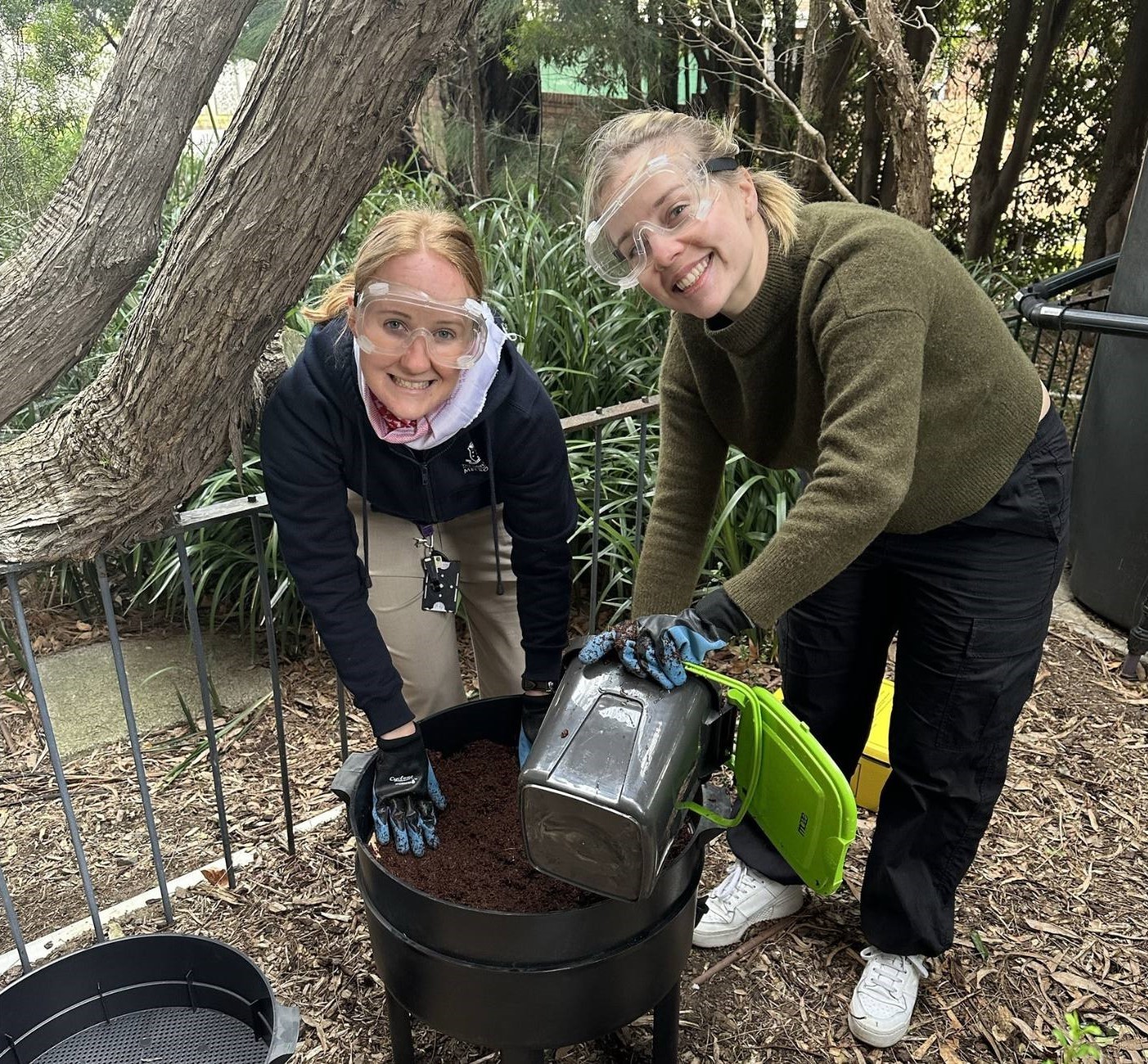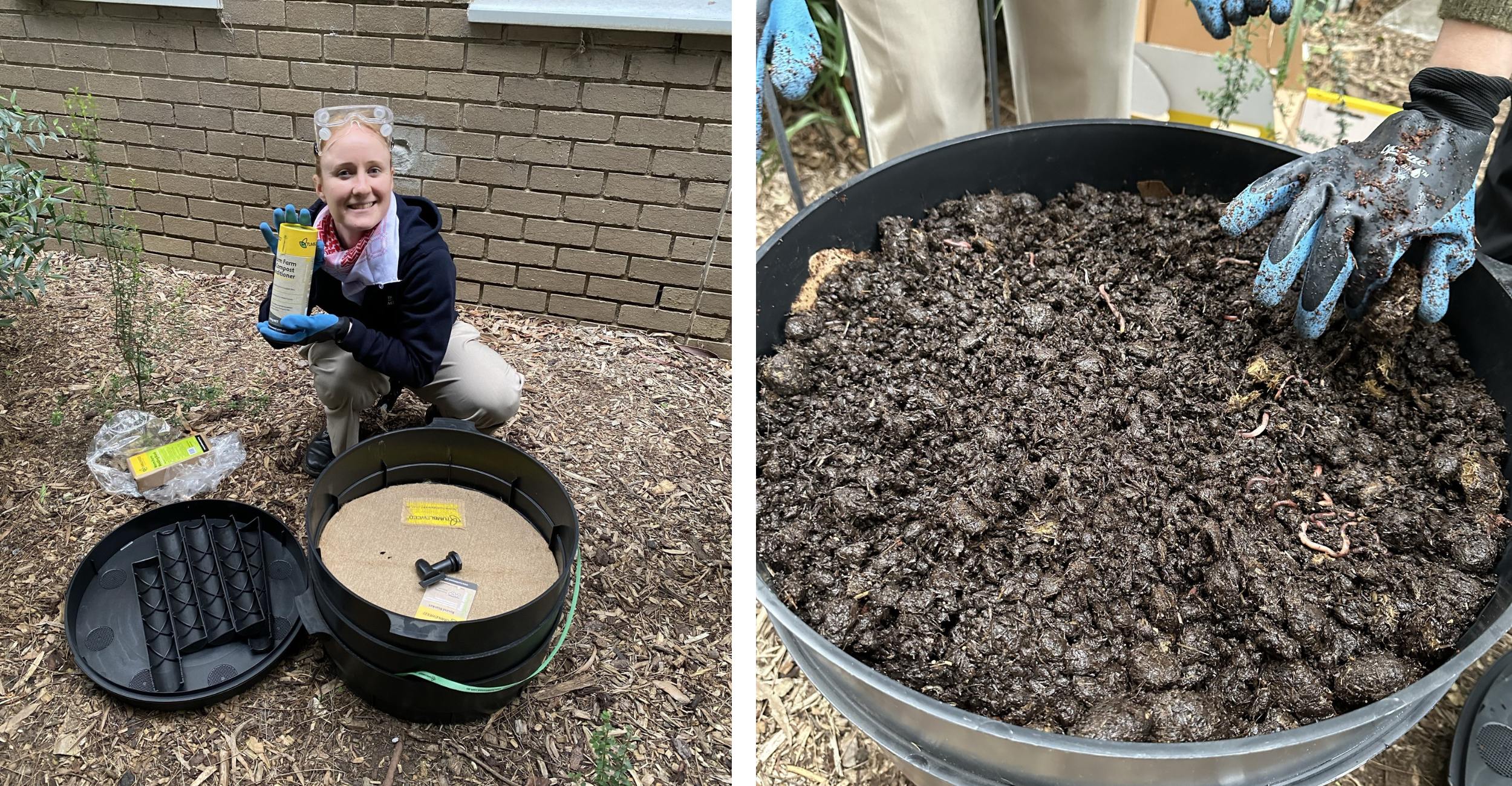
About the team
The Attenborough’s Avengers, a team of 8 from the School of Culture and Communication at the University of Melbourne, have been actively participating in the Green Impact program in 2024. Based in the Faculty of Arts, this enthusiastic group of educators and administrators has taken incorporating sustainability into their daily operations seriously. Their engagement with the program has incorporated the University’s sustainability goals, showcasing their commitment to environmental stewardship within the academic community.
The inception of the worm farm project began with a simple inquiry into compost caddies for campus-wide use. The sustainability team provided a worm farm even before the official start of the Green Impact program, following approval by the school manager. The decision to adopt a worm farm stemmed from a desire to avoid the disheartening act of discarding food waste into landfill bins and to foster a more sustainable approach to waste management within the school.
To integrate the worm farm into the university community, the School operations team took charge of its management, ensuring familiarity with the Standard Operating Procedure (SOP) before its use. The worm farm was prominently featured in the school’s fortnightly newsletter and on the Sustainability noticeboard. Additionally, the Sustainability Team conducted an Organics Tour to educate the community about various organic waste disposal points across the campus, further highlighting the worm farm project.
Implementing the worm farm involved overcoming specific challenges, particularly in ensuring compliance with the university’s health and safety standards. The absence of an existing SOP from the University OHS teams led to the development of a comprehensive SOP by the supervisor, enabling the safe construction and use of the worm farm.
The worm farm has significantly contributed to the university’s sustainability efforts, particularly in promoting a circular economy—one of the primary goals in the University’s Sustainability Plan 2030. By redirecting food waste from landfills to the worm farm, the university is making strides towards reducing waste to a maximum of 10 kg per person, aligning with its broader waste reduction goals.
Although limited to the School of Culture and Communication initially, the worm farm project has influenced other staff members across different campus buildings, who are now keen on adopting similar sustainability practices. This growing interest reflects a shift in cultural attitudes towards sustainability on campus, expanding the impact beyond the initial team.
Based on the successful implementation at the University of Melbourne, other institutions are encouraged to consider similar projects if they have a suitable location for a worm farm. With the support of dedicated sustainability teams or through independent initiatives, these projects can provide an effective and manageable solution for disposing of food waste in the workplace.

“When we deposit our food waste in our worm farm, it helps promote a circular economy – one of the University’s priorities in the Sustainability Plan 2030.”

